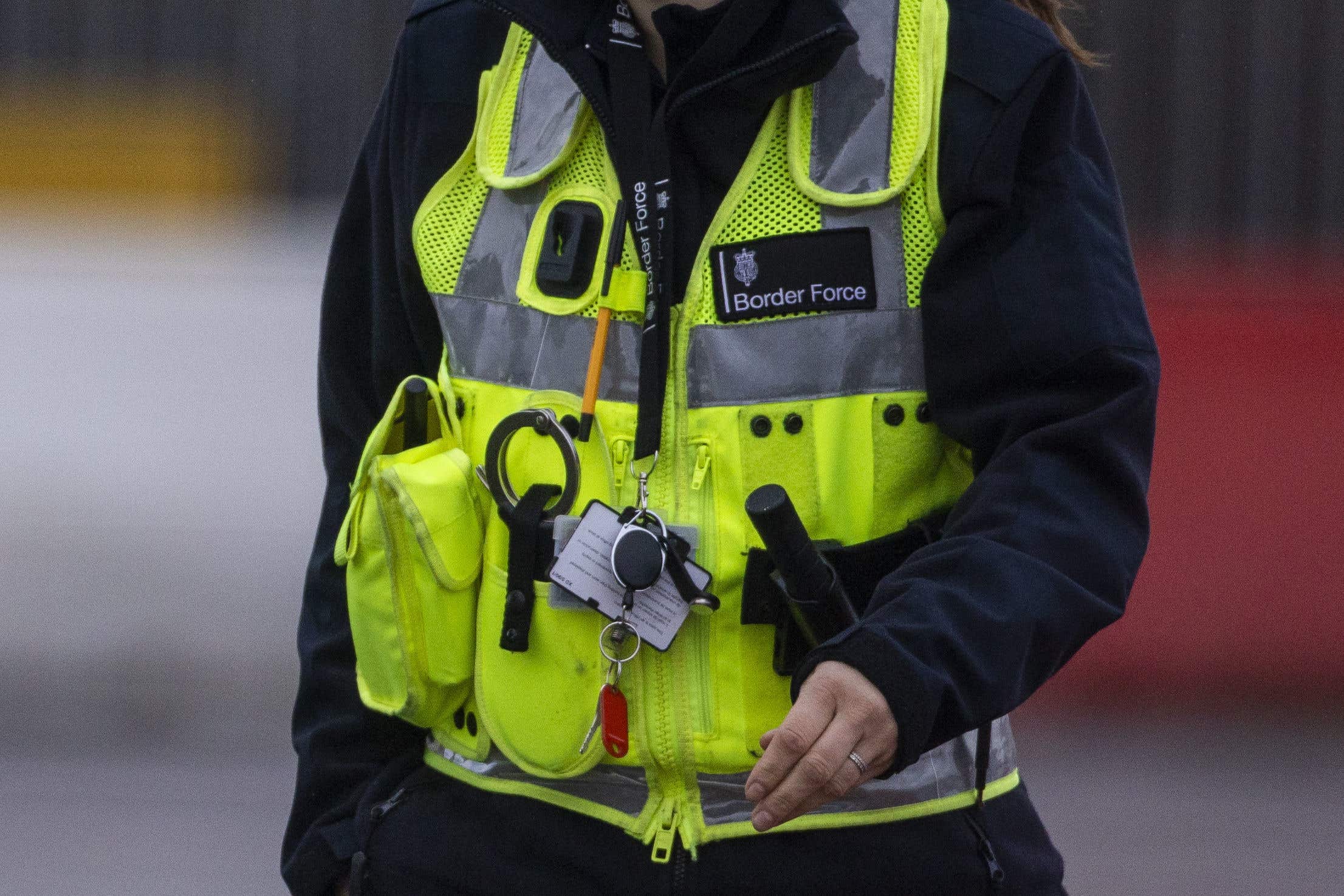Pay grievances put Border Force at ‘heightened’ risk of corruption – watchdog
David Neal also questioned the Government’s decision to redact parts of his report on ‘insider threat’ in the Border Force.

Your support helps us to tell the story
This election is still a dead heat, according to most polls. In a fight with such wafer-thin margins, we need reporters on the ground talking to the people Trump and Harris are courting. Your support allows us to keep sending journalists to the story.
The Independent is trusted by 27 million Americans from across the entire political spectrum every month. Unlike many other quality news outlets, we choose not to lock you out of our reporting and analysis with paywalls. But quality journalism must still be paid for.
Help us keep bring these critical stories to light. Your support makes all the difference.
Dissatisfaction over pay and conditions has increased the risk of corruption in the Border Force, the Government’s watchdog has said.
David Neal, the chief inspector of borders and immigration, said in a report on Thursday that the UK’s border security agency could face its own version of the scandals that have engulfed policing if it does not improve its ability to deal with “insider threat”.
His comments are the result of an inspection carried out at the beginning of the year which found “confused” leadership structures and a lack of data hampered the Border Force’s ability to prevent staff abusing their positions for personal gain.
The inspection also found “a lack of engagement” and “wide-level disaffection within the organisation”, particularly over pay, meant “the risk to Border Force from insider threat is likely heightened, and it is currently challenging to attain support across the organisation for the risk mitigation measures they would like to introduce”.
That disaffection has resulted in a number of strikes by Border Force staff this year, causing disruption at airports and requiring the armed forces to be brought in to provide cover for striking workers.
Mr Neal said: “Policing is facing the damaging fallout of an organisational structure that is failing to properly account for its insider threat.
“As a law enforcement agency, Border Force needs to be equipped for success. On the evidence of this inspection, it does not appear to be as well-equipped as it could or ought to be, which risks wider reputational consequence.”
Mr Neal also criticised the Home Office’s handling of his report, which was completed in May but has only now been published, six weeks after it was due to be released.
The report has also been subject to several redactions by the Home Office, including the omission of one of the inspector’s recommendations.
In this report, I consider that some of the redactions fail to meet the high ‘reasons of national security’ threshold set out in the Borders Act
The chief inspector questioned the need for the redactions, saying: “While I understand the inclination on the part of ministers and officials to resist the release of information that they see as potentially useful to criminality, this needs to be balanced against oversight and independent scrutiny.
“In this report, I consider that some of the redactions fail to meet the high reasons of national security threshold set out in the Borders Act.
“I am not clear how that assertion is now tested, but it is certainly an issue on which the Home Office should reflect. I have raised this issue regularly with officials since my appointment.”
Mr Neal said he has been unable to discuss the issues raised in the report with the immigration minister, Robert Jenrick, whom he has not met since March 21.
In its response, the Home Office accepted or partially accepted all of the inspector’s recommendations, saying it is “pleased” the Border Force is willing to “build organisational trust” but recognising there was “more to do”.
A Home Office spokeswoman said: “The report acknowledged that Border Force has built strong organisational trust and has a supportive culture through a specific programme for identifying and preventing insider threats, which built on existing vetting and security procedures.
“This means that Border Force is in a strong position to ensure both the integrity of its operations and its people, and we will continue to build on this work.”
Subscribe to Independent Premium to bookmark this article
Want to bookmark your favourite articles and stories to read or reference later? Start your Independent Premium subscription today.